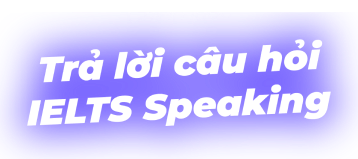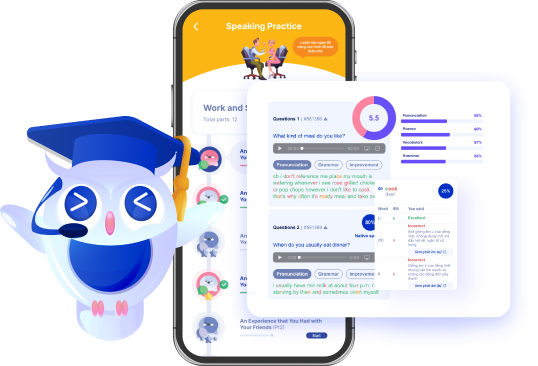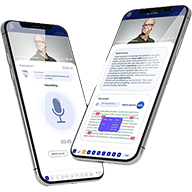History IELTS Speaking là một chủ đề hóc búa với nhiều thí sinh. Để giúp bạn xóa tan nỗi sợ và có cơ hội bứt phá trong phần thi này, Edmicro đã tổng hợp lời giải chi tiết cho cả 3 Part. Hãy cùng tham khảo nhé.
History IELTS Speaking – Part 1
History IELTS Speaking Part 1 xoay quanh các câu hỏi ngắn về chủ đề lịch sử. Bạn nên cung cấp câu trả lời trực tiếp, gãy gọn, súc tích.
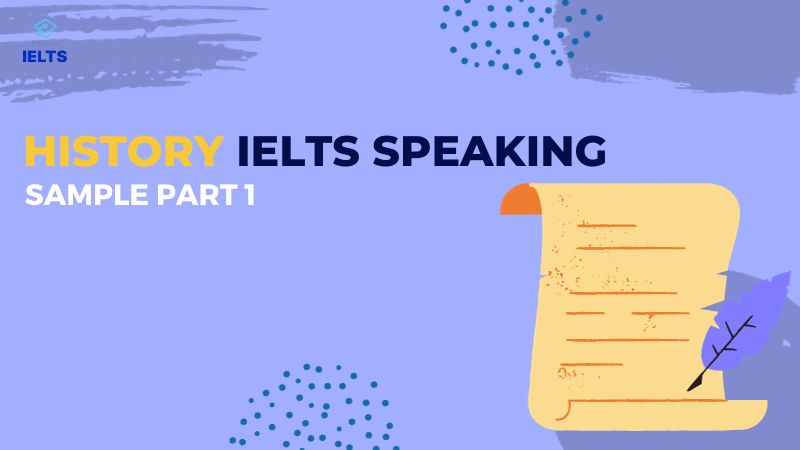
1. Do you like to learn about history?
Yes, I enjoy learning about history. It’s fascinating to delve into the past, understand how societies evolved, and explore the significant events and figures that have shaped our world. History provides valuable insights into human achievements and mistakes, and it helps us appreciate the present and plan for the future.
Dịch:
Vâng, tôi thích tìm hiểu về lịch sử. Thật thú vị khi được khám phá quá khứ, hiểu cách các xã hội phát triển và nghiên cứu những sự kiện cùng những nhân vật quan trọng đã định hình thế giới của chúng ta. Lịch sử mang lại những hiểu biết quý giá về những thành tựu và sai lầm của con người, đồng thời giúp chúng ta trân trọng hiện tại và hoạch định cho tương lai.
Từ vựng:
- delve into:đào sâu vào
- insight: sự hiểu biết
2. What historical event do you find interesting?
One historical event that I find particularly interesting is the Apollo 11 moon landing in 1969. It was a monumental achievement that marked the first time humans set foot on another celestial body.
Dịch:
Một sự kiện lịch sử mà tôi thấy đặc biệt thú vị là vụ đổ bộ lên Mặt Trăng của Apollo 11 vào năm 1969. Đây là một thành tựu vĩ đại, đánh dấu lần đầu tiên con người đặt chân lên một thiên thể khác.
Từ vựng:
- monumental (adj): to lớn, vĩ đại
- set foot on somewhere: đặt chân tới đâu
- celestial body (n): thiên thể
3. Do you think history is important?
Yes, I believe history is extremely important. It serves as a window into the past, allowing us to understand the events, decisions, and actions that have shaped our present world. History teaches us valuable lessons and insights about human behavior, societies, and cultures. It helps us avoid repeating past mistakes and guides us in making informed decisions.
Dịch:
Vâng, tôi tin rằng lịch sử vô cùng quan trọng. Nó là một cửa sổ nhìn vào quá khứ, cho phép chúng ta hiểu được những sự kiện, quyết định và hành động đã hình thành thế giới hiện tại. Lịch sử dạy chúng ta những bài học và hiểu biết quý giá về hành vi con người, xã hội và văn hóa. Nó giúp chúng ta tránh lặp lại những sai lầm trong quá khứ và hướng dẫn chúng ta đưa ra các quyết định sáng suốt.
Từ vựng;
- backbone (= foundation/bedrock/cornerstone): nền tảng
- to instil in sb: khắc sâu vào, in vào tâm trí ai
- formidable (adj) dữ dội
- against all odds: bất chấp mọi điều kiện nguy hiểm
- to triumph: dành chiến thắng
Xem thêm: IELTS Speaking Part 2: Chủ Đề Thường Gặp Và Bài Mẫu Chi Tiết
Sample Part 2
History IELTS Speaking Part 2 yêu cầu thí sinh thể hiện khả năng miêu tả, phân tích một vấn đề hay đối tượng có liên quan đến lịch sử. Kiến thức lịch sử không đủ sâu khiến nhiều thí sinh cảm thấy e ngại trước phần thi này.
Hãy cùng tham khảo bài trả lời mẫu cho IELTS Speaking History Part 2 để hiểu cách triển khai bài nói và thoát khỏi tình trạng bí idea nhé.
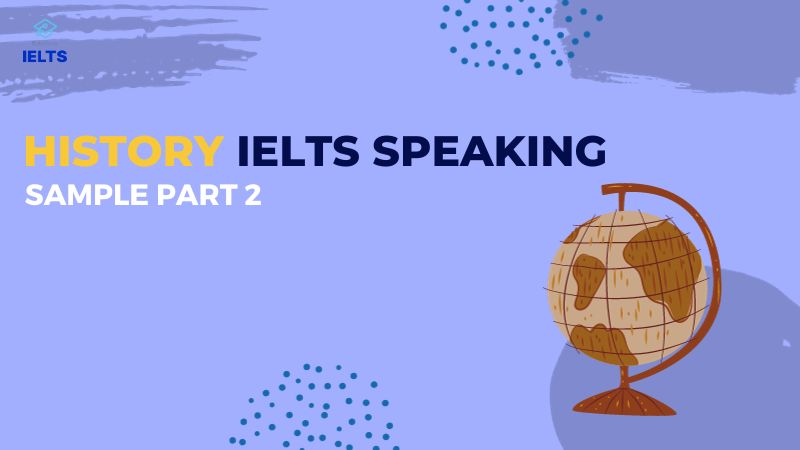
Đề bài
Describe a historical event in your country
You should say:
- When the event took place
- How you learnt about this era
- What happened
- Why you find it interesting
Bài mẫu 1
One historical event in my country that I find fascinating is the American Revolution, which took place in the late 18th century.
I first learned about this era through history classes in school and by reading various books and articles. It’s an event that’s deeply ingrained in American history, and it’s impossible to grow up in the United States without hearing about the Revolutionary War, the Founding Fathers, and the birth of the nation.
The American Revolution occurred between 1775 and 1783 and was a significant turning point in history. It was a war fought by American colonists against British rule, and it led to the birth of the United States as an independent nation. The era is marked by iconic events such as the Boston Tea Party, the signing of the Declaration of Independence, and the Battle of Yorktown, which resulted in the British surrender.
What makes this historical period so intriguing is the courage and determination of those who fought for independence. The principles of freedom, democracy, and individual rights that emerged during this time continue to influence not only the United States but also countries worldwide. The American Revolution was a pivotal moment that laid the foundation for modern democracies, and its impact on global history is significant. It’s a captivating era that continues to inspire and educate people about the value of liberty and self-determination.
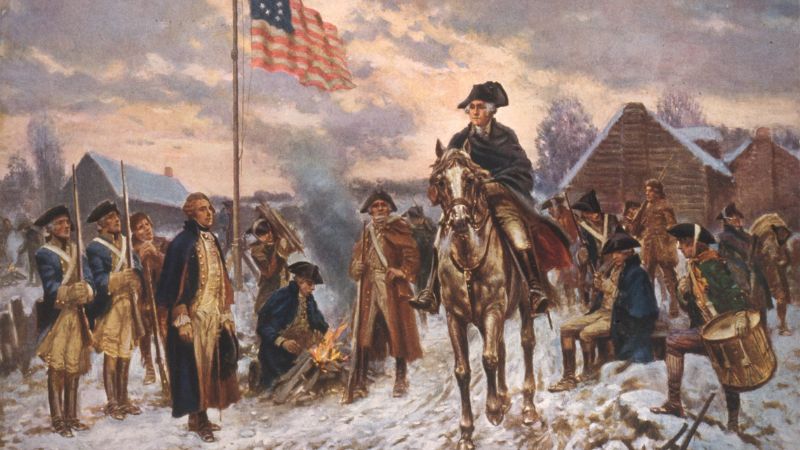
Dịch:
Một sự kiện lịch sử ở nước tôi mà tôi thấy đặc biệt hấp dẫn là Cuộc Cách mạng Mỹ, diễn ra vào cuối thế kỷ 18.
Lần đầu tiên tôi biết về thời kỳ này thông qua các lớp học lịch sử ở trường và việc đọc nhiều sách báo khác nhau. Đây là một sự kiện ăn sâu vào lịch sử Mỹ, và thật khó để lớn lên ở Hoa Kỳ mà không nghe về Chiến tranh Cách mạng, các “Founding Fathers” (Những Người Cha Lập Quốc) và sự ra đời của quốc gia.
Cuộc Cách mạng Mỹ diễn ra từ năm 1775 đến 1783 và là một bước ngoặt quan trọng trong lịch sử. Đây là cuộc chiến mà các thuộc địa Mỹ tiến hành chống lại sự cai trị của Anh, dẫn đến việc Hoa Kỳ ra đời như một quốc gia độc lập. Thời kỳ này được đánh dấu bằng những sự kiện mang tính biểu tượng như Boston Tea Party, việc ký Tuyên ngôn Độc lập và Trận Yorktown, kết thúc bằng việc Anh đầu hàng.
Điều làm cho giai đoạn lịch sử này trở nên hấp dẫn là lòng dũng cảm và quyết tâm của những người đấu tranh cho độc lập. Các nguyên tắc về tự do, dân chủ và quyền cá nhân xuất hiện trong thời kỳ này vẫn tiếp tục ảnh hưởng không chỉ đến Hoa Kỳ mà còn đến nhiều quốc gia trên thế giới. Cuộc Cách mạng Mỹ là một thời khắc quan trọng đặt nền móng cho các nền dân chủ hiện đại, và tác động của nó đối với lịch sử toàn cầu là rất đáng kể. Đây là một thời kỳ cuốn hút, luôn truyền cảm hứng và giáo dục con người về giá trị của tự do và quyền tự quyết.
Từ vựng:
- took place: diễn ra
- ingrain in: tin tưởng vào
- result in: gây ra
- intriguing (adj): thú vị
- pivotal (adj): quan trọng
- lay the foundation for: đặt nền móng cho
- captivating (adj): thu hút
Bài mẫu 2
One of the most significant historical events in my country is the Vietnamese Declaration of Independence, which took place on September 2, 1945. This event marked the end of French colonial rule and the beginning of Vietnam as an independent nation.
The declaration was made by Ho Chi Minh, who read the document in Ba Dinh Square in Hanoi. On that day, a large crowd gathered to witness the moment, and the atmosphere was filled with excitement, hope, and pride. The declaration formally announced the establishment of the Democratic Republic of Vietnam and outlined the principles of freedom, equality, and the right of the Vietnamese people to govern their own country.
This event is particularly important because it signified the end of centuries of foreign domination and the start of a new era of self-determination for Vietnam. It inspired the Vietnamese people to unite and fight for their independence during the subsequent conflicts, including the struggle against French colonial forces and later during the Vietnam War.
Personally, I find this event inspiring because it demonstrates the power of unity and determination in achieving national goals. Learning about the Declaration of Independence has helped me appreciate the sacrifices made by previous generations and the value of freedom and sovereignty. It also reminds me of the importance of preserving our culture and history, so that future generations can understand and honor the struggles that shaped our country.
In short, the Vietnamese Declaration of Independence is not only a milestone in the nation’s history but also a symbol of courage, resilience, and national pride. Its significance continues to influence the country’s identity and inspires citizens to contribute positively to society.
Dịch;
Một trong những sự kiện lịch sử quan trọng nhất ở Việt Nam là Tuyên ngôn Độc lập của Việt Nam, diễn ra vào ngày 2 tháng 9 năm 1945. Sự kiện này đánh dấu kết thúc ách thống trị của Pháp và bắt đầu thời kỳ Việt Nam trở thành một quốc gia độc lập.
Tuyên ngôn được Chủ tịch Hồ Chí Minh đọc tại Quảng trường Ba Đình ở Hà Nội. Vào ngày hôm đó, một đám đông lớn tụ tập để chứng kiến khoảnh khắc lịch sử, và không khí tràn đầy hứng khởi, hy vọng và niềm tự hào. Tuyên ngôn chính thức công bố việc thành lập nước Việt Nam Dân chủ Cộng hòa và nêu rõ các nguyên tắc về tự do, bình đẳng, cùng quyền của nhân dân Việt Nam trong việc tự quản lý đất nước.
Sự kiện này đặc biệt quan trọng vì nó đánh dấu sự kết thúc của nhiều thế kỷ bị ngoại bang đô hộ và mở ra một kỷ nguyên mới cho việc tự quyết của Việt Nam. Nó đã truyền cảm hứng để người Việt đoàn kết và chiến đấu giành độc lập trong các cuộc xung đột sau đó, bao gồm cuộc kháng chiến chống Pháp và sau này là chiến tranh Việt Nam.
Về mặt cá nhân, tôi thấy sự kiện này rất truyền cảm hứng vì nó thể hiện sức mạnh của sự đoàn kết và quyết tâm trong việc đạt được mục tiêu quốc gia. Việc tìm hiểu về Tuyên ngôn Độc lập giúp tôi trân trọng những hy sinh của các thế hệ trước và giá trị của tự do, chủ quyền. Nó cũng nhắc nhở tôi về tầm quan trọng của việc gìn giữ văn hóa và lịch sử, để các thế hệ tương lai hiểu và tôn vinh những đấu tranh đã hình thành đất nước.
Tóm lại, Tuyên ngôn Độc lập của Việt Nam không chỉ là một dấu mốc quan trọng trong lịch sử đất nước mà còn là biểu tượng của lòng dũng cảm, sự kiên cường và niềm tự hào dân tộc. Ý nghĩa của nó tiếp tục ảnh hưởng đến bản sắc quốc gia và truyền cảm hứng cho công dân đóng góp tích cực cho xã hội.
History IELTS Speaking – Part 3
IELTS Speaking History Part 3 tập trung vào những câu hỏi mở rộng xoay quanh chủ đề History. Phần thi này đòi hỏi thí sinh thể hiện nhiều hơn quan điểm cá nhân của mình.
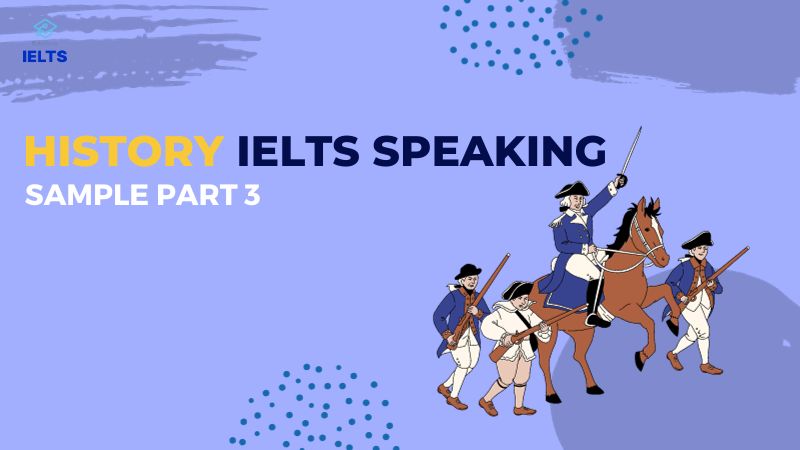
1. How is history taught in Vietnam?
In Vietnam, history is a compulsory subject taught throughout a student’s academic journey. The curriculum covers Vietnamese and world history, with a strong emphasis on the country’s own historical struggles for independence. The education system encourages critical thinking and analysis, and students are assessed through tests and examinations. To enhance learning, field trips to historical sites and museums are organized. Overall, history education in Vietnam aims to instill patriotism, a sense of national identity, and analytical skills.
Dịch:
Ở Việt Nam, lịch sử là một môn học bắt buộc được giảng dạy xuyên suốt quá trình học tập của học sinh. Chương trình học bao gồm cả lịch sử Việt Nam và lịch sử thế giới, với trọng tâm đặc biệt là những cuộc đấu tranh giành độc lập của đất nước. Hệ thống giáo dục khuyến khích tư duy phản biện và phân tích, và học sinh được đánh giá thông qua các bài kiểm tra và kỳ thi. Để nâng cao trải nghiệm học tập, các chuyến đi thực tế đến các di tích lịch sử và bảo tàng cũng được tổ chức. Nhìn chung, giáo dục lịch sử ở Việt Nam nhằm mục đích truyền cảm hứng yêu nước, xây dựng ý thức về bản sắc dân tộc và phát triển kỹ năng phân tích.
Từ vựng:
- monotonous /məˈnɒt.ən.əs/ (adj): nhàm chán
- compulsory (adj): bắt buộc
- instill (v): làm cho thấm nhuần
- patriotism (n): lòng yêu nước
- analytical skill (n): kỹ năng phân tích
2. Is there any difference between teaching history through books and movies?/ What is an effective way of learning history, by reading books or watching videos?
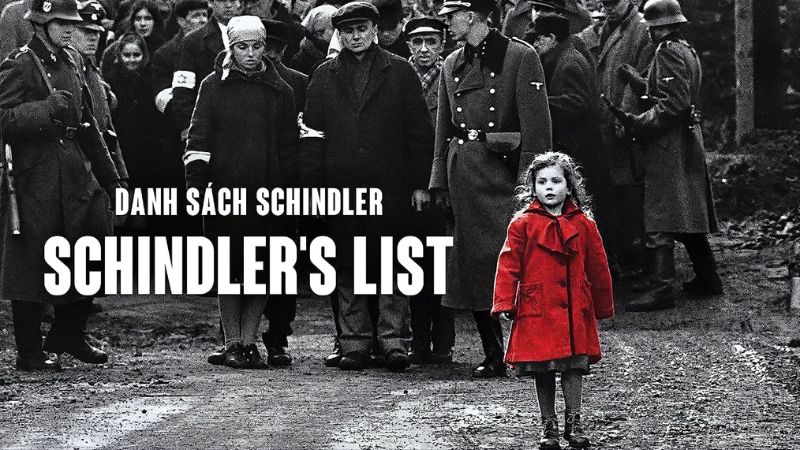
Teaching history through books and movies offers different approaches to learning. Books provide in-depth details and encourage critical thinking, while movies make history engaging and accessible. The choice depends on individual learning preferences and goals. A combination of both methods can be effective, with books offering depth and analysis and movies providing engagement and visualization. The most effective way to learn history varies from person to person, and a balanced approach can provide a comprehensive understanding of historical events.
Dịch:
Việc dạy lịch sử thông qua sách và phim mang đến những cách tiếp cận học tập khác nhau. Sách cung cấp thông tin chi tiết và khuyến khích tư duy phản biện, trong khi phim làm cho lịch sử trở nên sinh động và dễ tiếp cận hơn. Lựa chọn phương pháp phụ thuộc vào sở thích và mục tiêu học tập của từng cá nhân. Sự kết hợp cả hai phương pháp có thể rất hiệu quả, với sách mang lại chiều sâu và phân tích, còn phim cung cấp sự hấp dẫn và hình ảnh minh họa. Cách học lịch sử hiệu quả nhất thay đổi theo từng người, và một phương pháp cân bằng có thể đem lại hiểu biết toàn diện về các sự kiện lịch sử.
Từ vựng:
- in-depth (adj): có chiều sâu
- engaging (adj): hấp dẫn, thú vị
- visualization (n): sự trực quan
- variy (v): thay đổi
- comprehensive (adj): toàn diện
3. Why are there many children who do not like to learn history?
Children often dislike history due to its perceived lack of relevance and potential boredom from traditional teaching methods, such as memorization. Complex narratives and a dry teaching approach further contribute to this disinterest. A lack of interactivity and the absence of connections between past and present events also play a role. To address these issues, educators can use more engaging methods, relate history to current events, and emphasize its relevance to make it more appealing to children.
Dịch:
Trẻ em thường không thích lịch sử vì cho rằng nó thiếu liên quan và có thể gây nhàm chán do phương pháp giảng dạy truyền thống, chẳng hạn như học thuộc lòng. Những câu chuyện phức tạp và cách giảng dạy khô khan càng làm giảm hứng thú. Việc thiếu tính tương tác và không liên kết các sự kiện quá khứ với hiện tại cũng góp phần vào tình trạng này. Để giải quyết những vấn đề này, giáo viên có thể sử dụng các phương pháp hấp dẫn hơn, liên hệ lịch sử với các sự kiện hiện nay và nhấn mạnh tính liên quan của nó để làm cho môn học trở nên thu hút trẻ em hơn.
Từ vựng:
- memorization (n): sự ghi nhớ
- narrative (n): trần thuật, kể chuyện
- address (v): giải quyết
Từ vựng & Collocations trong History IELTS
Dưới dây là các từ vựng hữu ích về chủ đề History:
Danh từ IELTS Speaking History
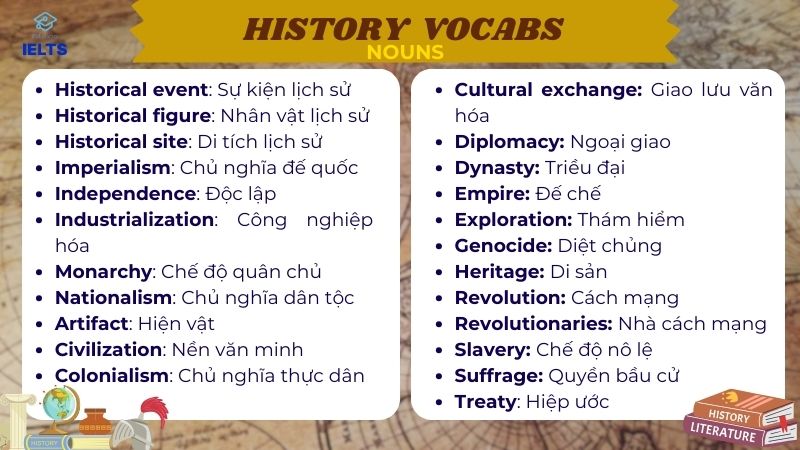
Tính từ IELTS Speaking History
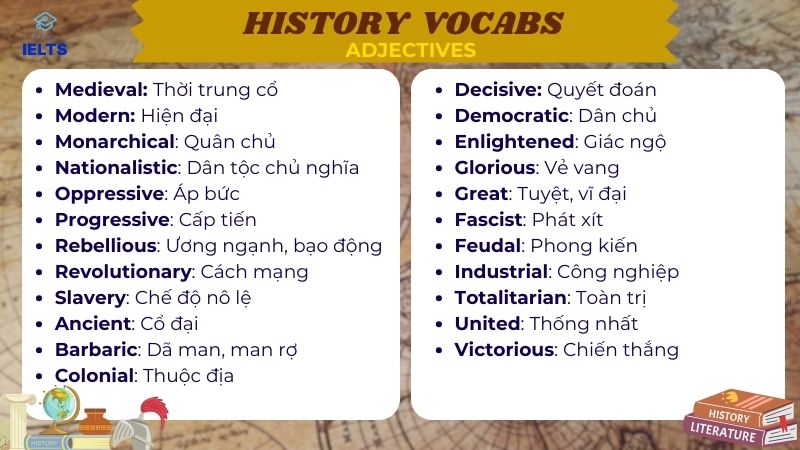
Động từ IELTS Speaking History
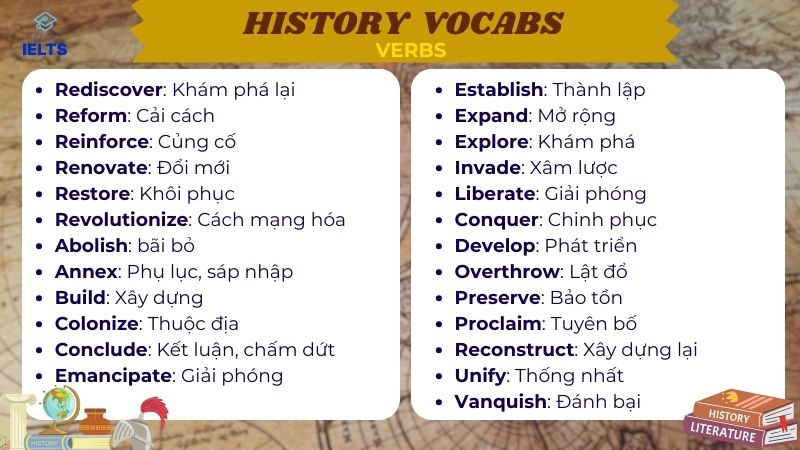
Collocations History topic IELTS Speaking
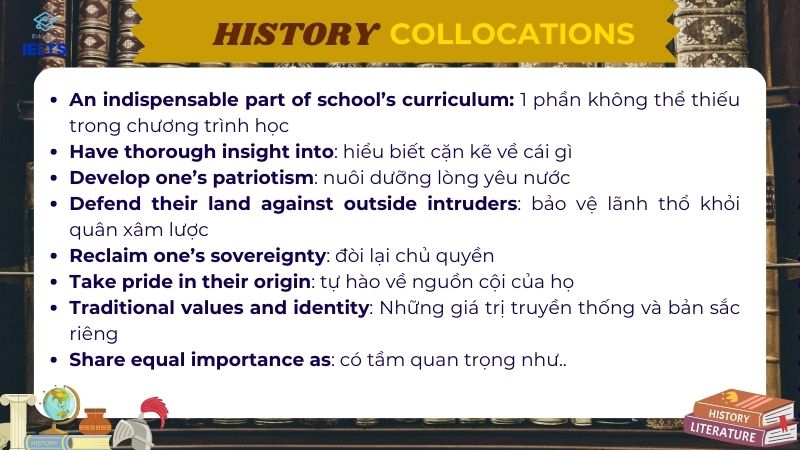
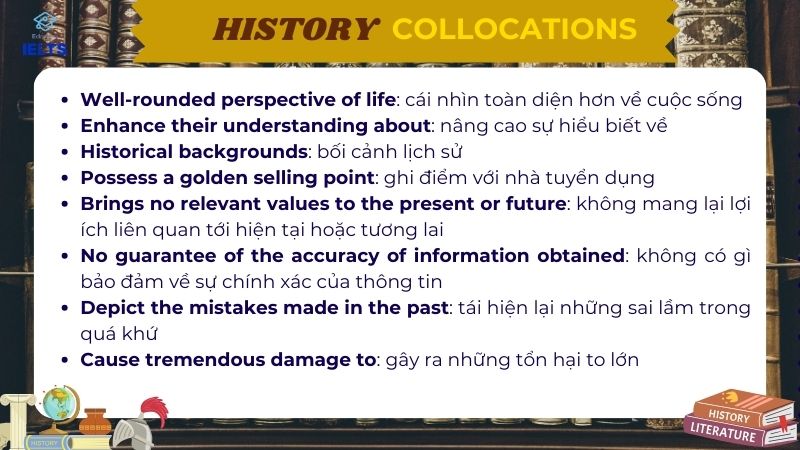
Trên đây là những gợi ý ôn luyện và lời giải chi tiết cho chủ đề History IELTS Speaking. Chúc bạn ôn luyện hiệu quả và nhanh chóng cán đích band điểm Speaking mơ ước.
Xem thêm:





